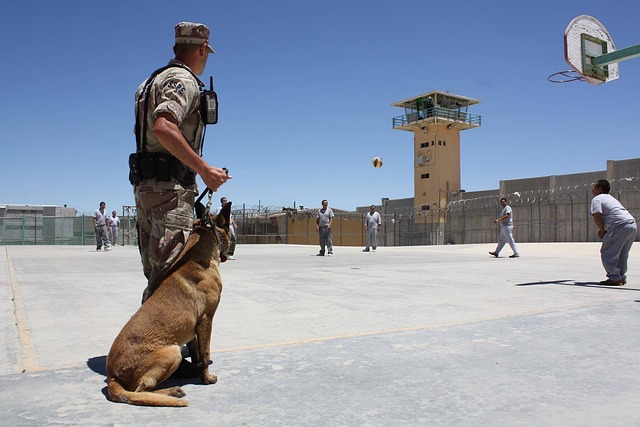Rural and urban areas worldwide exhibit stark contrasts in Driving Under the Influence (DUI) legislation, with varied penalties, BAC limits, and enforcement strategies. Urban regions enforce stricter rules due to higher population densities and complex traffic, while rural areas have more lenient laws reflecting lower traffic volumes and distinct social norms. International travelers must familiarize themselves with local DUI regulations, grasp BAC limits, and prioritize safety to avoid charges, whether in urban or rural settings. Staying informed and planning ahead are crucial for navigating different legal systems and practicing safe driving in diverse landscapes.
“Embarking on an international journey? Safe driving is paramount, especially with varying rural and urban DUI laws worldwide. This guide navigates the complexities of global road safety, offering essential insights for responsible travelers. From understanding local DUI regulations in bustling urban centers to adopting safe practices in remote rural areas, these tips ensure a smooth and secure trip.
Learn about the ‘Rural vs Urban DUI Legislation’ dichotomy, vital knowledge that could save you from legal pitfalls. By adhering to these guidelines, you can confidently enjoy your travels while prioritizing safety.”
- Understanding Rural and Urban DUI Laws: A Global Perspective
- Safe Driving Practices for International Travelers: Essential Guidelines
- Navigating Different Legal Systems: Tips for Urban and Rural Destinations
Understanding Rural and Urban DUI Laws: A Global Perspective

Driving under the influence (DUI) laws vary significantly around the globe, with notable differences between rural and urban areas within countries. In many nations, urban and rural DUI legislation differ in terms of penalties, blood alcohol concentration (BAC) limits, and enforcement practices. Urban areas often have stricter regulations due to higher population densities and more complex traffic patterns, resulting in harsher penalties for DUI offenses. In contrast, rural regions typically have more lenient laws, reflecting lower traffic volumes and different social norms.
Understanding these disparities is crucial for international travelers who may face legal consequences if charged with DUI. Rural vs urban DUI legislation can influence not only the potential penalties but also the way law enforcement approaches such cases. Travelers should be aware of local drinking and driving laws, understand the BAC limits in their destination country, and always prioritize safety to avoid situations that could lead to a DUI charge, regardless of their location.
Safe Driving Practices for International Travelers: Essential Guidelines

Safe driving practices are essential for international travelers, especially when navigating rural versus urban landscapes and varying DUI legislation. In many countries, rural areas have different traffic patterns and lower enforcement presence compared to bustling urban centers. This can lead to a false sense of security, so it’s crucial to adapt your driving behavior accordingly. For instance, speed limits in rural zones might be higher, but so should your awareness of potential hazards like wildlife crossings or unpaved roads.
When traveling internationally, stay informed about local DUI laws, which can differ significantly from those back home. Some countries have stricter penalties for drinking and driving, with lower blood alcohol levels considered illegal. Others may enforce zero-tolerance policies. Understanding these regulations in advance will help you make responsible choices to avoid a costly mistake or even a legal nightmare. Always plan ahead, designate a sober driver, or arrange alternative transportation when enjoying alcoholic beverages during your travels.
Navigating Different Legal Systems: Tips for Urban and Rural Destinations

Navigating different legal systems can be a challenge for international travelers, especially when it comes to driving. In urban areas, strict traffic rules and zero-tolerance policies are common, with heavy penalties for violations like speeding or drunk driving (DUI). Cities often have complex one-way streets, busy intersections, and pedestrian zones that require careful attention. Drivers should stay alert, follow local speed limits, and always obey traffic signals to ensure safe navigation in urban environments.
In rural destinations, the legal landscape can differ significantly, with more lenient DUI legislation compared to urban areas. Lower population densities often mean fewer police patrols, so drivers may feel less immediate pressure to adhere strictly to traffic rules. However, this doesn’t negate the importance of safe driving practices. Rural roads might have hidden hazards like wildlife crossings or uneven terrain, so a cautious approach is crucial. Always be aware of local driving customs, yield signs, and speed limits tailored to rural conditions to avoid accidents and potential legal issues related to Rural vs Urban DUI Legislation.
When traveling internationally, understanding the local laws regarding driving under the influence (DUI) is paramount. The disparities between rural and urban DUI legislation worldwide are significant, with stricter penalties often levied in urban areas. Safe driving practices for international travelers necessitate a nuanced approach, adapting to different legal systems and cultural norms. By adhering to essential guidelines and being mindful of these variations, travelers can ensure a safer journey and avoid severe consequences associated with violating local DUI laws, whether in rural or urban destinations.






